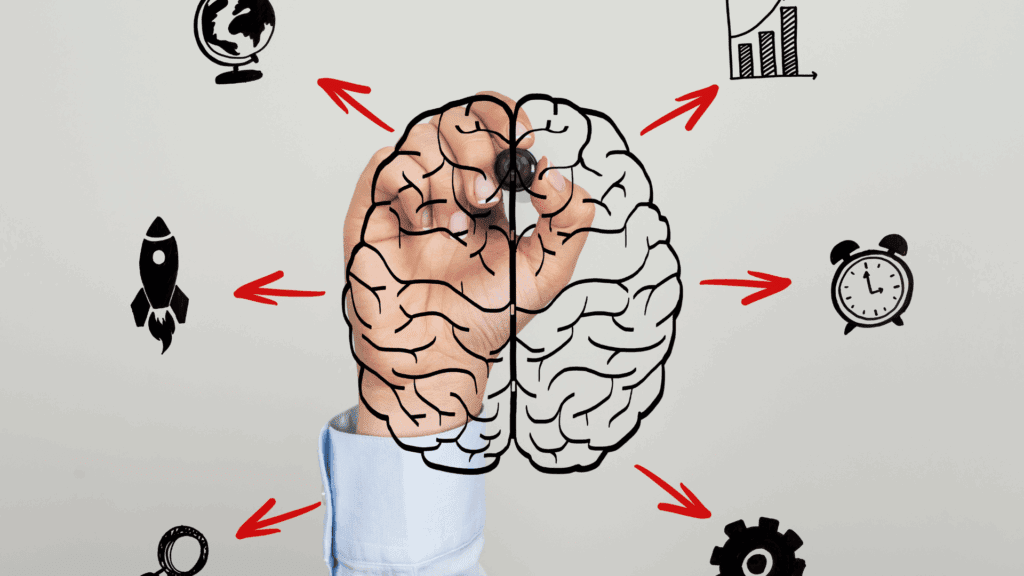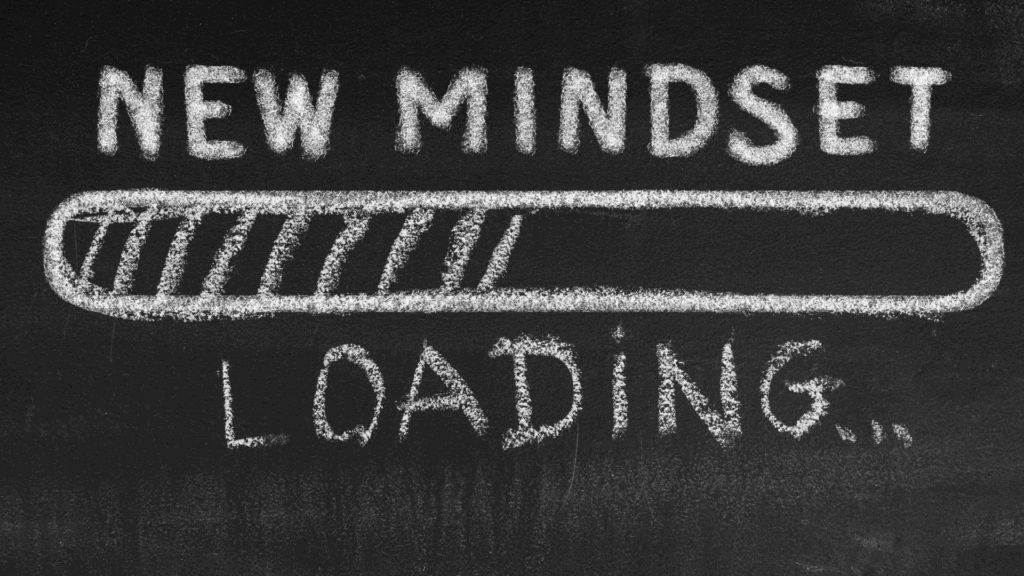Mindset mastery is more than a motivational buzzword—it’s the foundation of personal and professional transformation. The way you think, the beliefs you hold, and the attitudes you nurture shape every aspect of your life. But what exactly is mindset mastery, and how can you harness it to unlock your full potential? In this comprehensive guide, we’ll explore the neuroscience, evolutionary biology, psychology, and sociology behind mindset mastery, share real-life coaching insights, and provide practical strategies to help you master your mind and change your life.
What is Mindset Mastery?
Mindset is the conscious and ongoing process of directing, shaping, and optimizing your thoughts, beliefs, and attitudes to serve your highest potential. At its core, mindset mastery means becoming the architect of your mental landscape—choosing not to be ruled by automatic reactions or self-limiting beliefs, but instead to intentionally cultivate a way of thinking that empowers growth and resilience.
Rather than seeing challenges as threats, mindset mastery involves reframing obstacles as opportunities for learning and personal growth. For example, someone practicing mindset mastery might face a career setback, like being passed over for a promotion. Instead of spiraling into self-doubt, they ask, “What can I learn from this experience? How can I improve and try again?” This approach transforms setbacks into stepping stones rather than stumbling blocks.
Mastering your mindset also involves breaking free from the grip of negative self-talk and old stories that keep you stuck. Imagine a person who has always believed they’re “bad at public speaking.” With mindset mastery, they recognize this belief as a mental habit, rather than an unchangeable truth, and begin to challenge it by seeking new experiences, practicing, and celebrating their progress. Over time, these intentional shifts in thinking create new neural pathways in the brain, making confidence and adaptability more automatic.
Ultimately, mindset mastery empowers you to set ambitious goals and pursue them with determination, even when the path becomes challenging. It’s the difference between giving up at the first sign of difficulty and persisting until you find a solution. People who develop mindset mastery become more adaptable, creative, and resilient—not because they never face failure, but because they know how to use failure as fuel for future success.
Whether you’re striving for personal growth, professional advancement, or simply a greater sense of well-being, mindset mastery is the key that unlocks your ability to thrive, no matter what life throws your way.

The Neuroscience of Mindset Mastery
The foundation of mindset mastery lies in the brain’s remarkable ability to change and adapt—a phenomenon known as neuroplasticity. Neuroplasticity refers to the brain’s ability to constantly rewire itself in response to new experiences, learning, and intentional practice. When you work on mindset mastery, you’re creating new neural pathways that support positive thinking, resilience, and adaptability.
The prefrontal cortex, the brain’s “executive center,” is crucial for mindset mastery. It’s responsible for decision-making, planning, and self-regulation. This region helps you override automatic negative thoughts and choose more constructive responses. Meanwhile, the amygdala, the brain’s emotional center, can trigger fear and anxiety responses that undermine a positive mindset. Mindset mastery involves training the prefrontal cortex to regulate the amygdala’s reactions, reducing stress and enhancing emotional control.
Recent research shows that the more you practice positive, growth-oriented thinking, the stronger these neural pathways become. Over time, your brain becomes more efficient at defaulting to optimism, problem-solving, and resilience—even in the face of adversity.
Evolutionary Perspectives on Mindset
From an evolutionary standpoint, the human brain evolved to prioritize survival. This meant favoring negative or threat-focused thinking to avoid danger—a phenomenon known as negativity bias. While this bias helped our ancestors survive, it can make it challenging to maintain a positive mindset in modern life.
However, the ability to master one’s mindset is itself an evolutionary advantage. Humans who could adapt their thinking, learn from mistakes, and innovate in changing environments were more likely to thrive. Mindset mastery taps into this ancient capacity for adaptation, allowing us to rewrite old patterns and respond flexibly to new challenges.
Humans are also inherently social creatures. Our mindsets are shaped not only by our own experiences but also by the beliefs, attitudes, and values of the groups to which we belong. Social learning and cultural transmission play a decisive role in mindset mastery, highlighting the importance of community and environment in shaping our mental habits.
Psychological Foundations of Mindset Mastery
Psychologically, mindset mastery is closely linked to self-efficacy—the belief in your ability to succeed. High self-efficacy fuels motivation, persistence, and resilience. When you believe you can grow and overcome obstacles, you’re more likely to take initiative, stay focused, and bounce back from setbacks.
Mindset mastery also involves metacognition—thinking about your thinking. This self-awareness enables you to identify and challenge cognitive distortions, such as all-or-nothing thinking or catastrophizing, which can sabotage progress. By practicing metacognition, you gain the power to reframe challenges as opportunities, rather than threats.
Sociological Influences on Mindset
Our social environment has a profound impact on our mindset. Supportive relationships, positive role models, and constructive feedback can reinforce a growth mindset. Conversely, toxic environments and unfavorable social comparisons can entrench limiting beliefs and self-doubt.
Cultural values and societal expectations also shape mindset mastery. In cultures that emphasize learning and effort, individuals are more likely to develop a growth mindset. In contrast, cultures that focus on fixed traits or outcomes may discourage risk-taking and innovation.
Social comparison, especially in the age of social media, can be a double-edged sword. While it can inspire growth, it can also trigger feelings of inadequacy. Mindset mastery involves learning to navigate these influences and maintain a focus on personal progress rather than external validation.

The Role of Neuroplasticity in Mindset Mastery
Neuroplasticity is the brain’s ability to reorganize itself by forming new neural connections throughout life. This adaptability is the cornerstone of mindset mastery. When you intentionally practice new ways of thinking, your brain strengthens the neural pathways associated with those thoughts, making positive thinking more automatic over time.
This process is not instantaneous; it requires consistent effort and repetition to achieve its desired results. However, the brain’s plasticity means that even deeply ingrained negative thought patterns can be reshaped. This scientific understanding empowers individuals to take control of their mental habits and cultivate a mindset that supports growth and resilience.
The Impact of Stress and Anxiety on Mindset
Stress and anxiety can significantly impair mindset mastery by hijacking the brain’s executive functions. When the brain perceives a threat, the amygdala activates the fight-or-flight response, releasing stress hormones such as cortisol throughout the body. This response can overwhelm the prefrontal cortex, reducing its ability to regulate emotions and make rational decisions.
Chronic stress can lead to a state of heightened vigilance and a negative bias, making it more challenging to maintain a positive mindset. Understanding this interaction between stress and mindset mastery highlights the importance of managing stress to support mental flexibility and growth.
Sociocultural Factors and Mindset
Our social environment plays a crucial role in shaping our mindset. Cultural values, family beliefs, and peer influences can either support or hinder the mastery of one’s mindset. For example, cultures that emphasize fixed traits and limitations may discourage growth-oriented thinking, while those that value learning and effort foster a growth mindset.
Social comparison, amplified by social media, can also impact mindset. Constant exposure to curated images of success and happiness can lead to feelings of inadequacy and self-doubt. Developing mindset mastery involves learning to navigate these social influences and maintain a focus on personal growth rather than external validation.
The Evolutionary Advantage of Mindset Mastery
From an evolutionary perspective, the ability to adapt one’s mindset has been critical for human survival. Early humans faced constantly changing environments and challenges that required flexible thinking and problem-solving. Those who could shift their mindset to embrace new strategies and learn from failure were more likely to thrive.
This evolutionary legacy means that mindset mastery is not just a modern self-help concept but a fundamental human capacity. Cultivating this ability taps into our brain’s natural design for adaptation and resilience.
The Psychological Impact of Mindset Mastery
Mindset mastery influences not only how we think but also how we feel and behave. A mastered mindset fosters emotional resilience, enabling individuals to bounce back from setbacks with greater ease. It reduces the impact of negative emotions, such as fear, anger, and frustration, which can cloud judgment and hinder progress.
Moreover, mindset mastery enhances motivation by aligning goals with intrinsic values and beliefs. When people believe in their ability to grow and succeed, they are more likely to take initiative, persist through challenges, and maintain focus on long-term objectives.
Sociological Implications of Mindset Mastery
On a broader scale, mindset mastery can influence social dynamics and community well-being. Individuals with a growth mindset tend to make positive contributions to their social groups, fostering collaboration, innovation, and mutual support. This creates environments where learning and development are valued, and collective resilience is strengthened.
Organizations that cultivate mindset mastery among their members often experience higher engagement, creativity, and adaptability—key factors for success in today’s rapidly changing world.

The Role of Mindset Mastery in Leadership
Mindset mastery is a defining trait of truly effective leaders. In today’s rapidly evolving professional landscape, leaders are constantly faced with uncertainty, high-stakes decisions, and the challenge of guiding diverse teams toward shared goals. Those who have developed mindset mastery are uniquely equipped to navigate these complexities with confidence and clarity.
Leaders with mindset mastery excel at emotional intelligence. They are attuned not only to their thoughts and feelings but also to the emotional climate of their teams. This self-awareness enables them to regulate their responses, remain calm under pressure, and approach problems with a solution-oriented mindset. Rather than reacting impulsively to setbacks, leaders who practice mindset mastery pause, reflect, and respond with intention, setting a powerful example for those around them.
Strategic thinking is another hallmark of mindset mastery in leadership. Leaders who cultivate a growth-oriented mindset are more likely to embrace innovation, encourage creative risk-taking, and adapt quickly to change. They see challenges as opportunities to learn and grow, rather than as threats to their authority or reputation. This perspective not only fuels their development but also inspires their teams to adopt a similar approach, fostering a culture of resilience and adaptability.
Mindset mastery also plays a pivotal role in motivating and empowering others. Leaders who model optimism, persistence, and a willingness to learn from their failures create an environment where team members feel safe taking initiative and pushing beyond their comfort zones. This psychological safety is essential for high-performing teams, as it nurtures trust, open communication, and collective problem-solving.
Understanding the neuroscience and psychology behind mindset mastery gives leaders a significant edge. By recognizing how stress and uncertainty can trigger fixed or negative thinking, leaders can implement strategies to maintain focus and composure. They are better equipped to manage their stress responses, make informed decisions, and support their teams through periods of change.
Moreover, leaders who invest in their mindset mastery are more likely to champion professional development for others. They understand that growth is a continuous journey, and they encourage ongoing learning, feedback, and reflection at every level of the organization. This commitment to growth not only drives individual success but also propels the entire organization forward.
In essence, mindset mastery transforms leadership from a position of authority into a practice of influence, inspiration, and continuous evolution. It is the foundation upon which resilient, innovative, and high-impact leaders are built—leaders who are prepared not just to survive change, but to shape it.

Client Case Study: Transforming Mindset for Success
When Erica first walked into my office, her posture told the story before she spoke a word—shoulders slightly hunched, eyes darting away, hands twisting a pen in anxious circles. As a mid-level manager in a fast-paced tech company, Erica was outwardly competent but inwardly plagued by relentless self-doubt. Every new project felt like a test she was destined to fail. She confessed, almost in a whisper, that she often lay awake at night replaying every perceived mistake, convinced she wasn’t “leadership material.” Her fixed mindset was a silent saboteur, convincing her that her abilities were set in stone and that risk-taking would only expose her flaws.
During our first sessions, it became clear that Erica’s inner critic was running the show. She described a constant mental loop: “You’re not good enough. You’re going to mess this up. Why would anyone listen to you?” This pattern had become so automatic that she barely noticed it, yet it colored every decision she made. The impact was profound—Erica avoided speaking up in meetings, hesitated to apply for promotions, and shied away from opportunities that could have showcased her talents. She felt trapped, watching her peers advance while she remained stuck in the same role, her confidence eroding with each missed chance.
Our work together centered on the principles of mindset mastery. I helped Erica tune into her internal dialogue, teaching her to recognize when her thoughts drifted toward self-criticism and fear. We explored the roots of her fixed mindset, tracing it back to early experiences where mistakes were met with harsh judgment rather than encouragement. Through the lens of mindset mastery, Erica began to see that her beliefs were not immutable truths but learned patterns—patterns that could be unlearned and replaced.
As Erica practiced the tools of mindset mastery, subtle shifts began to emerge. She started to challenge her automatic thoughts, asking herself, “Is this belief true? What evidence do I have that I can’t grow?” She kept a journal of her daily wins, no matter how small, and celebrated progress rather than perfection. Over time, her self-awareness blossomed into self-compassion. She began to view challenges not as threats, but as invitations to learn and stretch beyond her comfort zone.
The transformation was remarkable. Within a few months, Erica volunteered to lead a cross-departmental project—a role she would have once avoided at all costs. She spoke up in meetings, her voice steady and clear, and her ideas began to shape the company’s strategy. Her colleagues noticed the change, commenting on her newfound confidence and collaborative spirit. Most importantly, Erica felt it within herself —a quiet yet unshakeable belief that she could handle whatever came her way.
Erica’s journey is a testament to the power of mindset mastery. By rewiring her thought patterns and embracing growth, she not only advanced in her career but also rediscovered her potential. Her story illustrates that mindset mastery isn’t about eliminating fear or doubt, but about learning to move forward despite them, armed with the knowledge that your mind can constantly be reshaped for greater resilience and success.

Practical Strategies for Mindset Mastery
In my neuropsychology practice, I help clients achieve mindset mastery by leveraging the latest insights from neuroscience to create sustainable, brain-based change. The foundation of mindset mastery begins with understanding how the brain forms and maintains thought patterns. Through intentional practice, you can rewire your neural pathways, making growth-oriented thinking more automatic and resilient over time.
1. Neuro-Awareness Training
The first step is cultivating deep awareness of your thoughts and beliefs. I use neuropsychological assessments and guided self-reflection to help clients identify automatic thought patterns and habitual brain responses. By bringing these patterns into conscious awareness, you activate the prefrontal cortex—the brain’s executive center—which is crucial for self-regulation and intentional change.
2. Reframing and Neural Repatterning
In sessions, I teach clients how to interrupt negative or limiting thoughts and consciously reframe them into growth-oriented perspectives. Neuroscience shows that each time you replace a negative thought with a positive, adaptive one, you strengthen new neural connections. Over time, this process—known as neural repatterning—makes empowering thought patterns more dominant, thereby reducing the influence of old, limiting beliefs.
3. Visualization and Mental Rehearsal
One of the most powerful tools I use is visualization. Guided imagery and mental rehearsal activate the same neural circuits as real-life experiences. When clients visualize themselves succeeding, overcoming obstacles, or responding calmly to stress, they reinforce those pathways in the brain. Regular visualization practice primes the brain for real-world success and builds confidence at a neural level.
4. Mindful Attention and Emotional Regulation
Mindfulness is a core component of my approach. By training clients to focus their attention on the present moment, we enhance activity in the prefrontal cortex and reduce overactivity in the amygdala—the brain’s fear and anxiety center. This shift improves emotional regulation, making it easier to respond thoughtfully rather than react impulsively to challenges.
5. Neuroplastic Goal Setting
Setting realistic, incremental goals is essential for mindset mastery. I work with clients to break down large objectives into manageable steps, celebrating small wins along the way. Each achievement triggers the release of dopamine in the brain, reinforcing motivation and making the pursuit of future goals more rewarding. This process harnesses the brain’s natural reward system to sustain positive change.
6. Feedback and Adaptive Learning
In my practice, I emphasize the importance of both internal and external feedback. Clients learn to interpret setbacks as valuable data for growth rather than as failures. This adaptive learning approach is rooted in neuroscience, which shows that the brain is most plastic and capable of change when it is challenged and receives timely, constructive feedback.
7. Brain-Healthy Lifestyle Habits
Ultimately, I help clients develop lifestyle habits that promote optimal brain health. Regular physical exercise enhances neurogenesis and improves cognitive function, while quality sleep and a balanced diet provide the foundation for emotional stability and mental clarity. These habits create a fertile environment for mindset mastery to flourish.
By integrating these neuroscience-based strategies into daily life, my clients experience profound shifts—not just in their thinking, but in their confidence, resilience, and ability to achieve meaningful goals. Mindset mastery is not a one-time achievement, but an ongoing process of brain-based self-development and transformation.
Embracing Mindset Mastery: Your Path Forward
The journey to mindset mastery is deeply personal and unique to each individual. It requires commitment, self-compassion, and a willingness to challenge old patterns. But with the proper knowledge and tools, anyone can cultivate a mindset that supports growth, resilience, and success.
Remember, mindset mastery is not about perfection. It’s about progress—small, consistent steps that lead to lasting change. By embracing the science of your brain and the power of your thoughts, you can transform challenges into opportunities and setbacks into stepping stones.
Start today by observing your thoughts without judgment, choosing to reframe negativity, and seeking out experiences that stretch your comfort zone. Over time, these practices will reshape your brain and your life.
Closing Thoughts
Mindset mastery is a dynamic interplay of neuroscience, psychology, evolution, and sociology. It empowers you to take control of your mental landscape, overcome limiting beliefs, and unlock your full potential. Through understanding and practice, you can develop a mindset that not only propels you toward your goals but also enriches your personal and professional life.
Embrace mindset mastery and unlock the power within your mind to create the life you desire and deserve.
#MindsetMastery #PersonalDevelopment #Neuroscience #GrowthMindset #ProfessionalDevelopment #Resilience #Coaching













